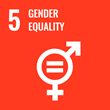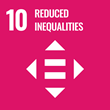
Project information
Psychological processes linking civic engagement to well-being

- Project Identification
- GA22-27941S
- Project Period
- 1/2022 - 12/2024
- Investor / Pogramme / Project type
-
Czech Science Foundation
- Standard Projects
- MU Faculty or unit
- Faculty of Social Studies
The project aims to describe how civic participation/engagement in young adulthood can enhance or impair well-being (a sense of personal well-being closely linked to quality of life). Civic engagement refers to individual and collective activities to bring about change or help in the public sphere, and includes a wide range of activities from volunteering to political protest or participation in traditional politics. Within well-being, we focus primarily on subjective well-being (positive affect and self-evaluation, absence of negative affect; Diener et al., 1999) and social-well being (e.g., feeling accepted or self-contributing; Keyes, 1998). Existing research shows that different types, levels, and patterns of civic engagement can have different impacts on well-being and mental health (e.g., Ballard et al, 2019; Wray-Lake et al., 2017), but there is a lack of detailed examination of the mediating mechanisms. Longitudinal studies of civic engagement also show that adolescents and young adults experience some changes in their perceptions of self and the surrounding society as a result of their civic engagement experiences (Metzger et al., 2019; Quintelier & van Deth, 2014; Sherek et al., 2017; Zhu et al., 2021). Building on these studies, we propose that civic engagement directly influences how a person perceives him or herself (e.g., self-competence and efficacy), his or her interpersonal and group relationships (e.g., social support), and the social system (e.g., need for change and openness to change), which in turn translates into well-being. Well-being can then feed back to influence whether and how a person engages civically. The project asks four main research questions:
VO1: What types, levels and patterns of civic engagement predict positive and negative changes in well-being?
VO2: What perceptions of self, one's interpersonal and group relationships, and the social system mediate the relationship between civic engagement and well-being? What is the sequence and direction of these effects?
VO3: How do perceptions of the social system interact in their effects on civic engagement and well-being?
VO4: Are the processes linking civic engagement and well-being moderated by individual resources and personal characteristics?
Sustainable Development Goals
Masaryk University is committed to the UN Sustainable Development Goals, which aim to improve the conditions and quality of life on our planet by 2030.
Publications
Total number of publications: 6
2025
-
The Effect of Civic Engagement on Different Dimensions of Well-Being in Youth : A Scoping Review
Adolescent Research Review, year: 2025, volume: 10, edition: 1, DOI
2024
-
Studie aktivního občanství a osobní pohody mladých dospělých : Výzkumná zpráva 1
Year: 2024
-
Studie aktivního občanství a osobní pohody mladých dospělých : Výzkumná zpráva 2
Year: 2024
-
System justification as a buffer against perceived threats
Year: 2024, type: Appeared in Conference without Proceedings
2023
-
Psychological processes linking civic engagement to well-being
Year: 2023, type: Appeared in Conference without Proceedings
-
Revisiting collective narcissism: sense of community, civic identity, EUpartisanship, and well-being
Year: 2023, type: Appeared in Conference without Proceedings




